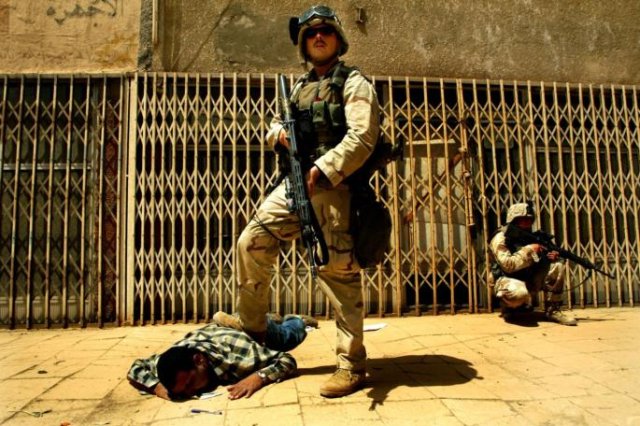
Blood Year: Islamic State & the failures of the War on Terror
By David Kilcullen
Hurst, 2016, 258 pp, $17.50
David Kilcullen operates in the post-structural, morally grey nether world that neoliberalism has created. Not quite a mercenary — but not much better — he slides between being an Australian soldier, a top-level civilian strategic thinking adviser to the US military, a “security consultant” and an academic.
Kilcullen drops hints of his world by mentioning in passing that when ISIS captured Mosul in 2014, he was out of mobile telephone coverage. He happened to be at a mountainous Colombian military forward base in operations against the leftist FARC guerillas.
In short: he is a player in a dimension that you and I get to read about, but never enter. It is a labyrinth in which highly-trained tough guys analyse reams of “intelligence” in order to organise “ops” in obscure places where “Western” forces commit ruthless slaughter.
You get the unmistakable impression that Kilcullen and his buddies relax after their “ops” by getting their guns out and comparing bores.
His overall assessment of the War on Terror is that “we’re worse off than before 9/11”. Because of his background, he is worth reading — but not relying on. The fact that he is demoralised about anti-terrorist strategy is more significant than his proposals, even though they are awful.
The best part of this book is its step-by-step history of how things went so horribly wrong in the Middle East. All-in-all, Kilcullen says, the anti-Islamic State strategies are not working. “We’re now in the fifteenth year since 9/11 and, horrible though it is to contemplate, we may be nowhere close to the end on the War on Terror,” he explains.
Kilcullen was involved in the invasion of Iraq, which he describes as a “slow-motion train wreck”. He isn’t much impressed with what Australia and the United States have done to Afghanistan, either.
He was a mover and a shaker in the US “surge” in Iraq. He believes it did a lot of good and ultimately failed because President Barack Obama put withdrawal ahead of getting a settlement suitable to the US.
You might think that, given these realities, he might perhaps recognise that the huge global protest movement that tried to stop George Bush’s drive was right in saying that it would bring more terrorism. Not so — democracy doesn’t loom large for David Kilcullen.
He warns that, with terrorism, we should never think that “this is as bad as it gets”. By that he means that ISIS is considerably more savage than al Qaeda was — and that there are still worse elements out there.
Perhaps you think that US drone slaughters, rendition flights and torture sites are themselves pretty savage by any measure? Is Kilcullen warning that the US could become even more unhinged?
No, for him US savagery is a moral slip, not a standard operating procedure.In fact, more and better-organised savagery seems to be Kilcullen’s prescription.
Kilcullen’s bottom line is that you can’t “fight without fighting”. We have to look at the War on Terror “without flinching and to actually fight it”. Drone attacks won’t help, for Kilcullen, because the problem is not one of technology — it is of “character and will”.
Like the article? Subscribe to Green Left now! You can also like us on Facebook and follow us on Twitter.